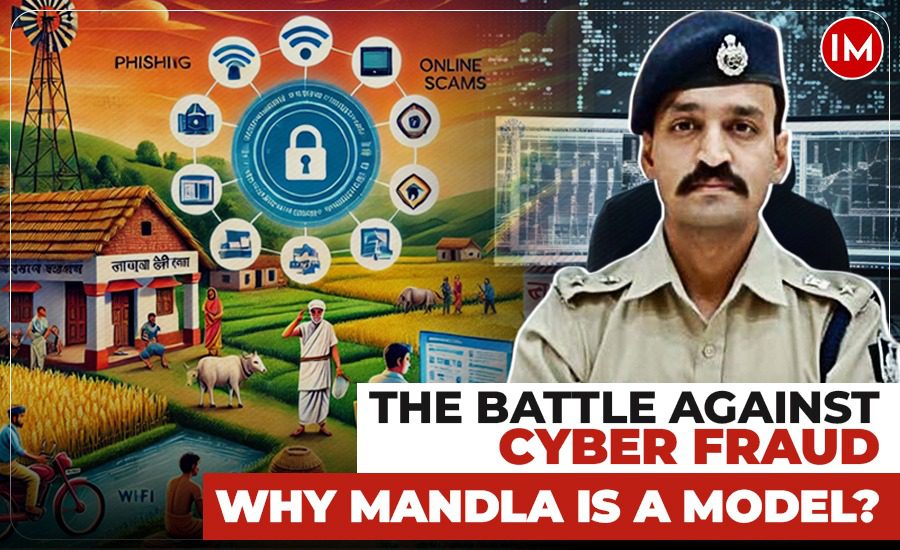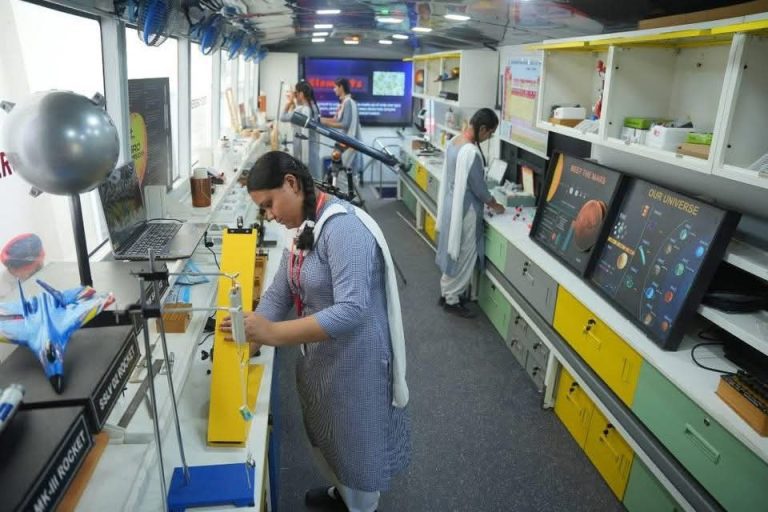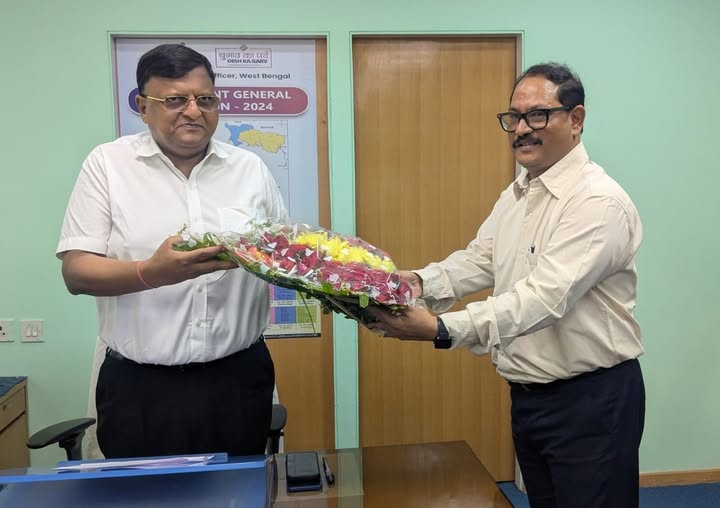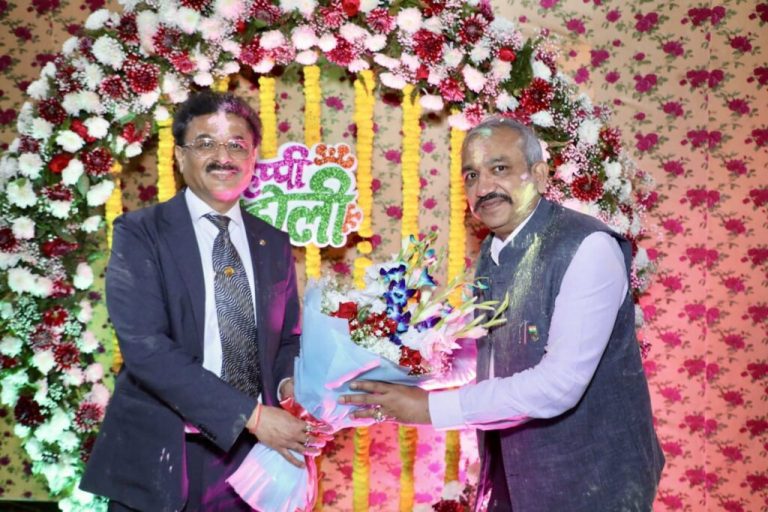In early December of last year, the police in Mandla district, Madhya Pradesh, uncovered an interstate fraud syndicate that had been using WhatsApp groups to deceive people into investing in fake apps. The gang had swindled over Rs 7 crore across 16 states. Remarkably, the revelation of this large-scale operation stemmed from a complaint filed in a remote village.
The complaint, lodged at the Anjaniya village police outpost, detailed how the victim was lured into online trading through a WhatsApp group. The fraudsters tricked him into investing Rs 17 lakh from his father’s retirement savings into a fake trading app. Initially, the app showed promising returns, but soon the funds began to disappear. Acting on this complaint, the police launched an investigation that led to the exposure of the entire gang.
In fact, Mandla police have uncovered several cyber crimes, both big and small, over the past year. Many of these cases were reported at local village police stations, an encouraging sign of increased awareness and access to justice. Previously, villagers had to travel to the district headquarters to report cyber crimes, but with the establishment of cyber cells in every police station and greater public awareness, the process has become more efficient. Not only have cyber crimes decreased, but victims are also finding it easier to report incidents and seek help.
This transformation is largely credited to Mandla’s district SP, Rajat Saklecha, a 2016 batch IPS officer. Under his leadership, the district police have recovered and refunded over Rs 60 lakh to victims of cyber fraud. The success of the district’s cyber cell is evident – while only 253 stolen mobile phones were recovered in 2023, that number jumped to 1,020 in 2024, with the phones returned to their rightful owners. Thanks to Saklecha’s initiatives, complaints are quickly addressed, and recovery rates have significantly improved. The local community now feels empowered, knowing that the police are not only listening but actively working to combat cyber crime.
Indian Masterminds spoke with Mr. Saklecha, to gain deeper insights into the initiatives he has implemented and his efforts in curbing cyber crime in the district.
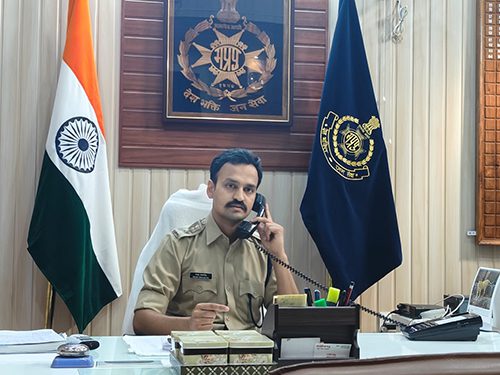
CURBING CYBER CRIME
This initiative, which began in January 2024, was a strategic shift in Mandla’s approach to tackling cyber fraud. Prior to this, the district police had struggled to make significant progress in addressing cyber crime cases. As Mr. Saklecha explained, the goal was clear – to secure people’s data, curb cyber crime, and increase the recovery of stolen mobiles. “In today’s era, people are heavily dependent on their mobile phones for everything – payments, identity verification, and storing personal data. As such, it has become the most important tool in people’s lives,” he said.
Previously, cyber crime cases were handled by centralized offices located at the district headquarters, requiring people from remote areas to travel long distances to file complaints. To make the process more accessible, Mr. Saklecha and his team implemented a groundbreaking solution – they set up dedicated cyber desks in every police station across the district. These desks were staffed by constables and officers with an engineering background, who received specialized training in cyber crime.
Now, residents of Mandla no longer need to go to the district office to report cyber crime. They can file complaints directly at their local police stations, making the process faster and more convenient. In addition, the Mandla police established dedicated local-level contact numbers for cyber crime complaints, ensuring that citizens can easily reach out for help. People can either call the designated number or visit their nearest station to report incidents.
The government’s launch of various cyber crime portals also played a key role in enhancing the district’s response. With these resources, Mandla police are now able to ensure 100% online complaint registration, allowing them to track each case efficiently. “This has made it much easier for people to file complaints and for us to monitor progress,” Mr. Saklecha noted. The results of these reforms have been evident: with quicker registration and better tracking, both the public and the police benefit from a more streamlined and effective system for handling cyber crime cases.
TACKLING COMPLAINS
Taking complaints has also become significantly easier under the new system. Instead of manually recording complaints on paper, the process is now entirely digital, with complaints being entered directly into the portal. To ensure smooth implementation, two constables and one officer at each police station were trained in handling cyber crime complaints and navigating the system.
Now, every police station in the district has a dedicated team of 3 to 4 officers who are well-versed in the entire cyber crime procedure and are readily available to assist the public. To keep the momentum going, weekly training sessions were held at every police station. If a particular station was performing well, their success stories were shared with the others. This fostered a culture of learning and improvement, as police stations could discuss their strategies, exchange ideas, and ask questions. This peer learning approach played a crucial role in building a strong, unified response to cyber crime across the district.
By sharing best practices and lessons learned, the Mandla police were able to create a collaborative environment that helped enhance efficiency and success in handling cyber crime cases. This approach not only improved the overall performance of the police stations but also empowered officers with the knowledge and skills needed to better serve the community. “Our aim is to minimize cyber crime in the district, and if it does occur, we want to ensure a quick recovery of losses,” he said.

SIM CARD FRAUD
Another major issue that the Mandla police tackled was a SIM card fraud that was particularly prevalent in the district. Given that Mandla is a tribal-dominated area, fraudsters often took advantage of the locals by obtaining their documents and using them to issue SIM cards. These SIM cards would then be used to commit cyber fraud in other regions. Unfortunately, some local individuals knowingly participated in this illegal activity, offering their personal details and documents for a small fee.
To address this problem, the police administration launched a large-scale awareness campaign. The police took proactive steps by identifying the areas where SIM cards were being fraudulently issued. In these areas, they called in local SIM dealers and conducted seminars to educate them about the risks associated with this fraud. Strict guidelines were issued to ensure that dealers followed proper procedures when issuing SIM cards.
In addition to these efforts, the police launched an extensive awareness campaign using large flex banners placed in cities and towns throughout the district. These banners highlighted the dangers of SIM card fraud and educated people about the importance of safeguarding their personal information.
As a result of these efforts, awareness of cyber crime has significantly increased, and the number of incidents began to decrease. People are now more comfortable and confident in reaching out to the police for help, knowing that the process is easy and accessible.
OTHER INITIATIVES
Alongside his efforts to combat cybercrime, Mr. Saklecha is also tackling another pressing issue in Mandla: road safety. “Last year, nearly 250 people lost their lives in road accidents. We are working hard to reduce this number by 20%,” he said. Saklecha and his team are focusing on stricter enforcement of traffic regulations, running public awareness campaigns, and enhancing infrastructure to make the roads safer for everyone.
He also stressed the importance of reporting crimes to ensure effective action. “If crimes are not reported, it becomes harder to detect them, and the chances of them happening again increase,” he explained.
ABOUT HIM
He originally hails from Ratlam district in Madhya Pradesh, where he grew up with his father, a bank officer at SBI. His early education was completed in his hometown of Ratlam. In 2012, he completed his degree in civil engineering, and in 2013, he began his civil services journey by attempting the UPSC CSE for the first time, making it to the mains. In his second attempt, in 2014, he reached the Interview round and also secured a position as Assistant Commandant in the CISF through another UPSC exam.
However, it was in his third attempt, UPSC CSE-2015, that he successfully cracked the exam with an AlR of 141 and became an IPS officer. He was allotted home cadre and received his first posting as a trainee officer in Ujjain. Before being posted to Mandla, he served as the Deputy Commissioner of Police (DCP) for Intelligence and Security in Indore.

